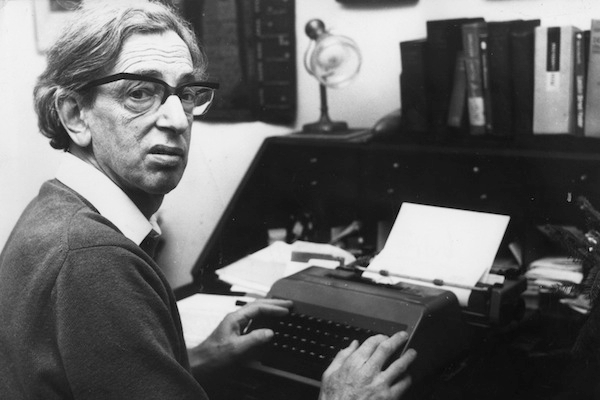In last week’s Spectator, Sam Leith reviewed Eric Hobsawm’s Fractured Times. Our ex-political editor and drink critic Bruce Anderson thinks Leith has missed a basic point about Hobsbawm’s career. Here is Anderson’s riposte in full:
In his review of Eric Hobsbawm’s ‘Fractured Times’ (Spectator, 23 March). Sam Leith misses the basic point: the basic treason. Throughout his career, Professor Hobsbawm was an apologist for the Soviet Union. This was forgivable in the 1930s, During that desperate decade, many thoughtful people despaired of liberal democracy and believed that they had found solace in Moscow. But after 1945, as the evidence mounted, Eric the Red kept the faith. Towards the end of his life, he said that it would have been worth twenty million dead to create a socialist society. Twenty million: pause for a minute, gentle reader, and try to begin to imagine their sufferings.
Hobsbawm’s hideous allegiance led him into a fundamental historical misjudgment. In his life as much is in his writings, he was a chronicler of the glories of pre-1914 old European high culture, especially in Vienna. But he never fully acknowledged the debt all that owed to the bourgeois social order, which promoted prosperity, the rule of law and free institutions, and which seemed – in Europe, at least – to be enabling mankind to make a decisive break with scarcity and oppression. For a generation after the second fall of man in 1914, everything went wrong. Then there was a gradual recovery, which again owed everything to a bourgeois social order. But Hobsbawn would have preferred an order imposed by the Red Army.
‘Army’ brings us to General Pinochet. By 1973, in Chile, democracy had broken down. The choice was Allende’s Stalino-Castroism or a military coup. The General took over. There was a price in blood: around .01 per cent of the one which Hobsbawm was prepared to pay for socialism. If Allende had won, there would also have been killings. It seems unlikely that Eric Hobsbawm would have complained. Pinochet’s rule brought benefits. He did not eradicate civil society or his country’s democratic traditions. He did promote prosperity. When he left power peacefully, after losing a referendum, he left a stable Chile with a strong economy. This contributed to progress in Latin America as a whole. After many decades of blunders and lost opportunities, large parts of that continent are beginning to thrive. General Pinochet deserves far more credit for that than he is likely to receive.
In the late Eighties, there was a low moment in British history. Hobsbawm had been made a Companion of Honour, while Pinochet was under arrest. In a mode of humour, rather than outrage, I did indeed say ‘Jail Hobsbawm, Free Pinochet’, in the hearing of that galumping tricoteuse Polly Toynbee, who had long since undergone a radical humourectomy, and who did pour a libation over me. Mr Leith — who may well be a closet Toynbee-ite — counts Hobsbawm a slightly greater loss than Pinochet. As an historian, no question: as a guide to political action, what about the twenty million?






Comments